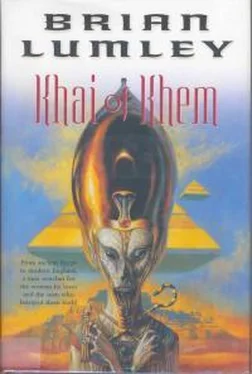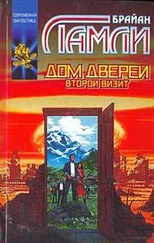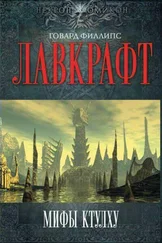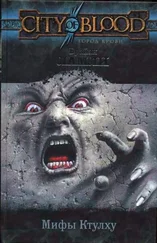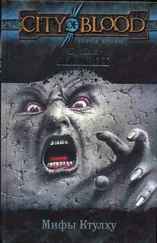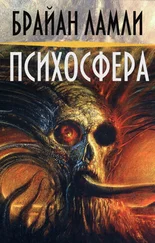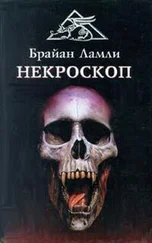The seven mages had seen the Candace in private earlier and had spent several hours with her. They had also seen Khai and had questioned him about his strange dreams and visions, and about his vow to return to Asorbes one day and destroy Pharaoh. They had not tried to explain Khai’s dreams— indeed their entire audience with him had seemed designed purely to glean information from him—but upon leaving him they had all saluted him and called him General. Also, the Nubian mage had taken his hands, examining them minutely as if to satisfy himself of something. And upon Khai showing the black mage Adonda Gomba’s sign, which he still carried with him wherever he went, then the ancient Nubian had addressed him as Khai the Killer.
At the meeting in the great hall of Ashtarta’s house, the atmosphere was one of high tension. Obviously something massively important was happening, so that when Ashtarta finally stood and addressed the assembly her every word was eagerly seized upon.
“Chiefs, military men, councilors and friends,” she began, “this will not be our usual meeting of tribal heads, but as you have doubtless guessed a most unusual meeting. Information of great moment has been brought to me by the seven wise men from all the lands around, whose word, I am assured, may only be ignored at the peril of all Kush. And this is the word: that even now Pharaoh poises his army like a great spear for a mighty thrust at Kush—one which will pierce the land through and through!”
As an excited babble broke out among the chiefs, Ashtarta held out her arms and spoke over their voices. “Make no plans, you chiefs, nor speak of battle and the ways of war. For every man you can muster Pharaoh has ten, and this time they won’t fall into your traps so readily. No, and I am advised that… that Kush should not defend herself!”
“Not defend?” a gnarled old chief jumped to his feet. “Is this Melembrin’s daughter who speaks to us? What then shall we do, O Candace? Give ourselves over into Pharaoh’s tender care?”
“Advice such as I have received comes hard,” Ashtarta answered him, “but its very source is such that I cannot refuse it. We will not make war with the Khemites nor even defend our lands against them—not yet. The world is far and wide, and our little land is but a small part. We shall go out into the world and leave Kush behind—for now.”
“Leave Kush?” the chiefs cried as one man, their voices shocked.
“That was my word,” Ashtarta answered sorrowfully. “Leave Kush— leave her ravished, burned, destroyed—so that the Khemites shall not benefit at all from holding her. Not a single animal, neither beast nor bird, nothing that lives shall they take. Burn the very ground, that is my word.”
“And where shall we go, Queen?”
“That is a question you must ask of Khai,” she answered them. “Of the General Khai, for thus I now appoint him. General Khai Ibizin, of Kush. And his brother general, Manek Thotak, also newly-promoted. Khai, what have you to say of the sundering of the tribes of Kush?”
Khai was astonished. He stood up, opened his mouth, said nothing.
“Huh!” snarled a belligerent chief. “See the Khemite, elevated to a general, little more than a youth and gasping like a fish out of water—or a man out of his depth!”
“Oh?” Khai found his tongue. “And would you put six of your best men in a ring of pebbles with this fish, Dori Antoshin? I think not. Only let me recover from the shock of this honor bestowed upon me, and I shall say where the sundered tribes must go.”
He leaned his knuckles on the great table and frowned, then cautiously began. “Myself, I shall take fifty thousand men into Nubia. I have friends there and we shall fight Pharaoh’s soldiers together, black and white side-by-side. Also, there is a metal in the ground, and I shall make weapons of it. The General Manek Thotak: he shall take a similar body of men into Siwad, and he too shall fight Pharaoh, for Kush and Nubia are not the only lands to suffer Khasathut’s oppression. And in Siwad Manek will learn the arts of swamp-fighting, which will be useful when we return to Kush and attack Pharaoh in his house across the swamps. Moreover, the Siwadis are experts with fine and supple leathers, and there are things I desire to be made which Manek will bring back with him when that time comes.” He paused for a moment and gazed at Ashtarta and Imthra at the head of the table.
“Our Queen and her mage, they shall go to the west, to the land of the Hyrksos peoples. The remainder of our warriors will go with her; the women and children, too. Pharaoh will not follow there, for that would be to advance his borders too far, and even he will not have the men for that—not with the Nubians and Siwadis worrying his flanks. The Hyrksos are a friendly people, for they have no enemies surrounding them and do not need to fight. But they are great craftsmen, and they have built travois which do not drag along the ground but ride over it by use of wheels. The Queen shall take many craftsmen and horse-soldiers out of Kush with her, and also designs which I shall give her; so that when she returns to Kush she may ride in a chariot of war!”
“Huh!” another chief, Genduhr Shebbithon, snorted his contempt. “The whole plan is a madness, based on the visions of wizards and the dreams of a foreigner come to power in Kush. ‘Go here,’ Khai says, and ‘go there.’ And ‘do this,’ or ‘do that.’ And are we supposed to obey? I challenge his authority, his right to command tribes, his very origins! Who is this Khai, blue-eyed and fair-haired, who holds such sway in Kush? And for that matter, who are these seven mages? Wizards, mummers and charlatans, say I. And if they are men of powers, what dark spells have they placed on Melembrin’s daughter that now she would flee the Khemites? Now look—there sits Manek Thotak, also a general. What does he think of all this, who like his father before him has proved himself since a boy and loves Kush as a Kushite should?”
Manek immediately stood up. “I think we should all be quiet,” be said. “You, too. Genduhr Shebbithon, until all is explained.”
“But who will explain?” questioned yet another chief. “It is the right of the Candace to choose her generals as and when she will, but since when does Kush employ doubtful wizards for her guidance?”
“Now hush !” commanded Ashtarta, her face dark and angry. “You are all too eager to snap and snarl. And I will not suffer insults to our guests. Do you think I have not shared your doubts? Of course I have, who love Kush better than any of you. If it comes hard for you to give up your territories, how then for me, who must forsake a throne? Now I will say it one more time: Kush must be either sundered or overwhelmed, one or the other. You, Genduhr Shebbithon—you went raiding with The Fox in Khem. And now you compare me to my father and say I am bewitched! Well, and did not Melembrin himself—even The Fox—run from the Khemites when it suited his purpose to do so?”
“But, Candace—” two or three of the chiefs groaned in unison, for they knew she was hurt and would not have had it this way.
“Hush!” she cut them short, then bade the spokesman for the seven mages to rise. “You have heard me,” she told her warrior chiefs, “and certainly I have heard enough of you. Very well, now listen to the words of men wiser by far than all of you gathered here. And having listened, then tell me I am wrong to accept their advice….”
No man knew the true names of the seven mages, for to let them be known would be to lessen their powers considerably. A name is a target at which an enemy may direct harmful spells. Thus it was that the spokesman for the seven, the yellow mage, was known simply as the Mage of Mentalism, and thus he introduced himself before he commenced the following narrative:
Читать дальше
